第82章 THE THIRD ENNEAD(19)
The failure is due to the disturbance caused by birth- though, before all reasoning, there exists the instinctive movement reaching out towards its own.
On instinct which the Sage finally rectifies in every respect?
Not in every respect: the Soul is so constituted that its life-history and its general tendency will answer not merely to its own nature but also to the conditions among which it acts.
The presiding Spirit, as we read, conducting a Soul to the Underworld ceases to be its guardian- except when the Soul resumes [in its later choice] the former state of life.
But, meanwhile, what happens to it?
From the passage [in the Phaedo] which tells how it presents the Soul to judgement we gather that after the death it resumes the form it had before the birth, but that then, beginning again, it is present to the Souls in their punishment during the period of their renewed life- a time not so much of living as of expiation.
But the Souls that enter into brute bodies, are they controlled by some thing less than this presiding Spirit? No: theirs is still a Spirit, but an evil or a foolish one.
And the Souls that attain to the highest?
Of these higher Souls some live in the world of Sense, some above it: and those in the world of Sense inhabit the Sun or another of the planetary bodies; the others occupy the fixed Sphere [above the planetary] holding the place they have merited through having lived here the superior life of reason.
We must understand that, while our Souls do contain an Intellectual Kosmos they also contain a subordination of various forms like that of the Kosmic Soul.The world Soul is distributed so as to produce the fixed sphere and the planetary circuits corresponding to its graded powers: so with our Souls; they must have their provinces according to their different powers, parallel to those of the World Soul: each must give out its own special act; released, each will inhabit there a star consonant with the temperament and faculty in act within and constituting the principle of the life; and this star or the next highest power will stand to them as God or more exactly as tutelary spirit.
But here some further precision is needed.
Emancipated Souls, for the whole period of their sojourn there above, have transcended the Spirit-nature and the entire fatality of birth and all that belongs to this visible world, for they have taken up with them that Hypostasis of the Soul in which the desire of earthly life is vested.This Hypostasis may be described as the distributable Soul, for it is what enters bodily forms and multiplies itself by this division among them.But its distribution is not a matter of magnitudes; wherever it is present, there is the same thing present entire; its unity can always be reconstructed: when living things- animal or vegetal- produce their constant succession of new forms, they do so in virtue of the self-distribution of this phase of the Soul, for it must be as much distributed among the new forms as the propagating originals are.In some cases it communicates its force by permanent presence the life principle in plants for instance- in other cases it withdraws after imparting its virtue- for instance where from the putridity of dead animal or vegetable matter a multitudinous birth is produced from one organism.
A power corresponding to this in the All must reach down and co-operate in the life of our world- in fact the very same power.
If the Soul returns to this Sphere it finds itself under the same Spirit or a new, according to the life it is to live.With this Spirit it embarks in the skiff of the universe: the "spindle of Necessity" then takes control and appoints the seat for the voyage, the seat of the lot in life.
The Universal circuit is like a breeze, and the voyager, still or stirring, is carried forward by it.He has a hundred varied experiences, fresh sights, changing circumstances, all sorts of events.The vessel itself furnishes incident, tossing as it drives on.
And the voyager also acts of himself in virtue of that individuality which he retains because he is on the vessel in his own person and character.Under identical circumstances individuals answer very differently in their movements and acts: hence it comes about that, be the occurrences and conditions of life similar or dissimilar, the result may differ from man to man, as on the other hand a similar result may be produced by dissimilar conditions: this (personal answer to incident) it is that constitutes destiny.
FIFTH TRACTATE.
ON LOVE.
1.What is Love? A God, a Celestial Spirit, a state of mind? Or is it, perhaps, sometimes to be thought of as a God or Spirit and sometimes merely as an experience? And what is it essentially in each of these respects?
These important questions make it desirable to review prevailing opinions on the matter, the philosophical treatment it has received and, especially, the theories of the great Plato who has many passages dealing with Love, from a point of view entirely his own.
Plato does not treat of it as simply a state observed in Souls; he also makes it a Spirit-being so that we read of the birth of Eros, under definite circumstances and by a certain parentage.
Now everyone recognizes that the emotional state for which we make this "Love" responsible rises in souls aspiring to be knit in the closest union with some beautiful object, and that this aspiration takes two forms, that of the good whose devotion is for beauty itself, and that other which seeks its consummation in some vile act.But this generally admitted distinction opens a new question: we need a philosophical investigation into the origin of the two phases.